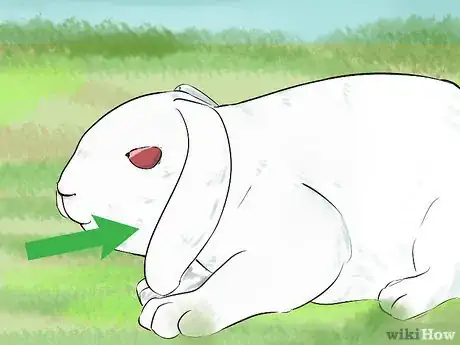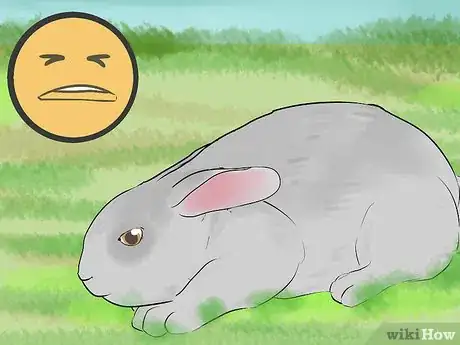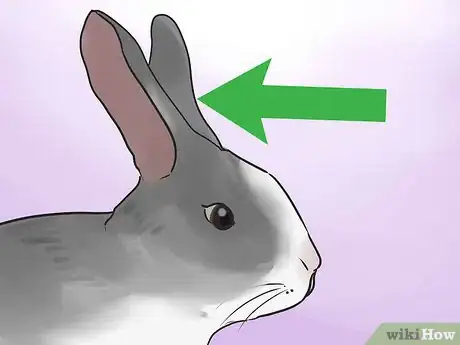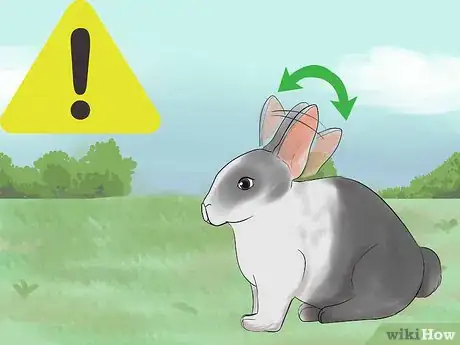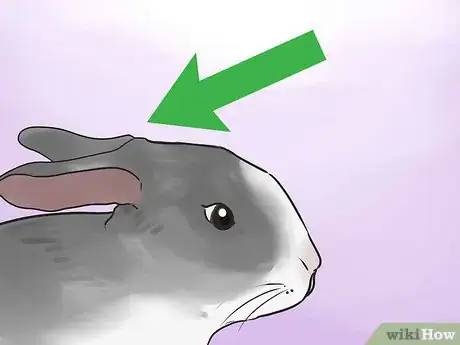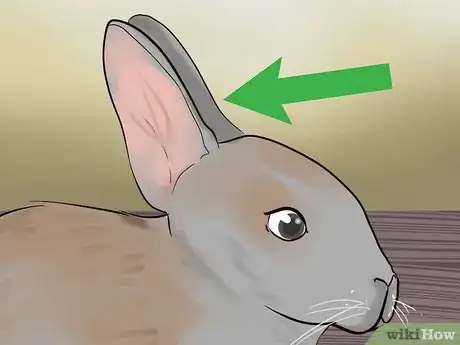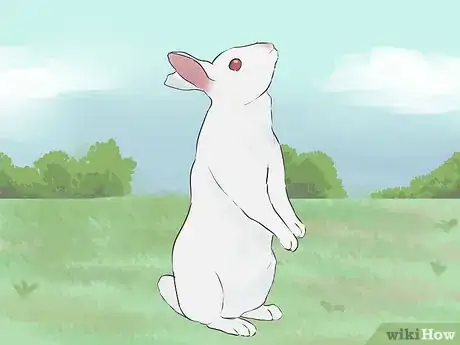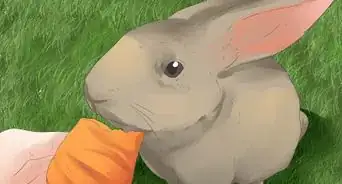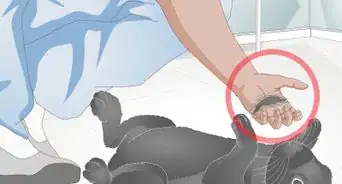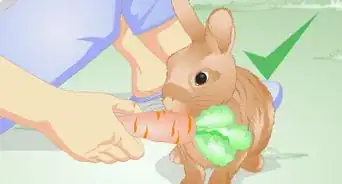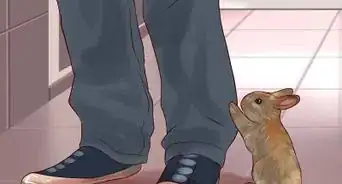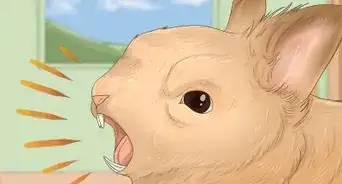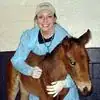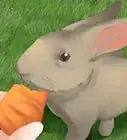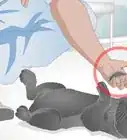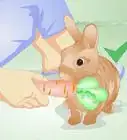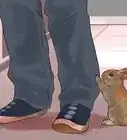This article was co-authored by Ryan Corrigan, LVT, VTS-EVN. Ryan Corrigan is a Licensed Veterinary Technician in California. She received her Bachelor of Science in Veterinary Technology from Purdue University in 2010. She is also a Member of the Academy of Equine Veterinary Nursing Technicians since 2011.
This article has been viewed 231,996 times.
Rabbits are expressive animals and their characteristic, floppy ears are one of the many methods they use to share their feelings. Some postures, like pointing their ears backwards, can have multiple meanings. Thus, you sometimes need to pay attention to the rabbit’s general body language to know what it is communicating.
Steps
Recognizing Signs of Happiness
-
1Watch for a happy bunny to lay its ears back. When your rabbit’s ears are lying down on their head, intersecting with each other in the back, they are resting. This means that they are content.
- If your rabbit’s ears are lying back against its head but are not touching, this can be a sign that it is frightened. Look at other body language cues to verify if your rabbit seems to be resting or agitated. If the rabbit’s eyes are half closed and it is lying down, it is probably happy. If it is growling, it is probably angry and afraid.[1]
-
2Watch for an exhausted bunny to let its ears down a little. If your rabbit is taking a break from exercise, it will often place its ears straight out and back, instead of lying completely down. This is a semi-relaxed pose and generally means that your rabbit wants to take a break before getting back to exercise.Advertisement
-
3Look for an excited bunny to shake its ears and hop. If your rabbit shakes its ears and then jumps, it is excited about something. Often, it is an invitation to play. Other times, it might be excited about getting fed.[2]
Recognizing Attention-Seeking Signals
-
1Recognize that your bunny is begging for food with its ears up. Rabbits tend to sit on their hind legs with their nose and ears in the air when they are alert. Domesticated rabbits often assume this position when they are trying to get their owner’s attention and get fed.[3]
- Rabbits can be as bad or worse than dogs with begging! Try to avoid giving your bunny treats or sweets or you may see more begging behavior.
-
2Watch for signs of ear trouble with shaking ears. If your bunny shakes its ears and then starts scratching at them, it is trying to get something out of its ear. Often, this is just harmless hair. However, if your bunny has been doing it frequently, it might be because it has ear mites.[4]
-
3Be attentive to the differences between a resting and frightened rabbit. If your rabbit's ears are resting against its head, but they are not touching, this can be a sign that it is frightened, rather than resting. If your bunny is frightened, it is also likely to have bulging eyes and will bare its teeth. It will often thump its feet when it is frightened.
Understanding Your Rabbit’s Interaction with Its Environment
-
1Watch for alert ears that stand up and/or twitch. When your rabbit’s ears are standing straight up in the air or are twitching, they are listening attentively for something. This generally means that they are alert and aware of something in their surroundings.
-
2Watch for a semi-alert rabbit to keep one ear up and one down. When your rabbit has one ear standing straight up and the other lying down, it is listening for sounds, but also trying to relax. This is common for a bunny that is enjoying some sun.
-
3Look for an inquisitive bunny to put its ears forward. When rabbits are interested in something, they will often stand on all fours and stretch their tail and their head out. Their nose and ears will be stretched out forward to inspect what is in front of them.
References
About This Article
To read bunny ear signals, check to see if your bunny's ears are lying down on its head and intersecting at the back, which is a sign that it's happy and content. However, if its ears are lying down but not crossing, it could mean your bunny is frightened. If you see your bunny shake its ears and start hopping around, know that it's excited and eager to play. Also, watch to see if your bunny's ears stand straight up when it sits on its hind legs, which usually means it's looking for food or attention. For more tips from our Veterinary co-author, like how to tell if your bunny is tired, read on!
